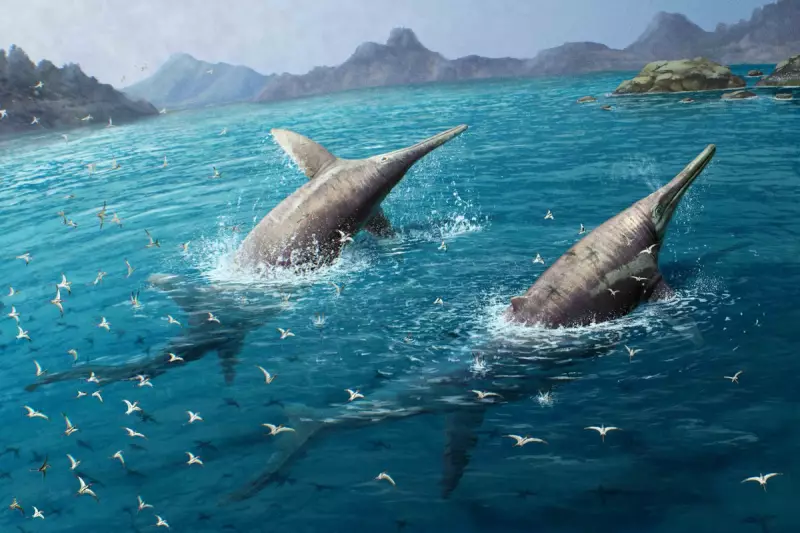
In an extraordinary discovery that reads like something from fantasy literature, fossil enthusiasts have uncovered the remains of a terrifying prehistoric predator along Dorset's iconic Jurassic Coast. The creature, affectionately dubbed the 'sea dragon,' represents one of the most complete marine reptile fossils ever found in the region.
A Jurassic Leviathan Revealed
The remarkable specimen measures an impressive two metres in length and dates back approximately 152 million years to the Late Jurassic period. What makes this discovery particularly significant is the exceptional preservation of the creature's skull and razor-sharp teeth, giving paleontologists an unprecedented look at this ancient marine hunter.
Local fossil hunters Steve Etches and Chris Moore stumbled upon the incredible find during one of their regular expeditions along the World Heritage Site coastline. The discovery has sent waves of excitement through the scientific community, with researchers describing it as potentially representing a previously unknown species of marine reptile.
The Science Behind the Sea Dragon
Dr. Steve Etches MBE, a renowned paleontologist involved in the discovery, expressed his astonishment at the find: "The preservation is absolutely magnificent. We have virtually the entire skull with teeth that would have made this creature a formidable predator in its Jurassic seas."
The fossil's nickname stems from its dragon-like appearance, featuring an elongated body, powerful flippers, and that fearsome dentition that would have made quick work of fish and smaller marine creatures. Unlike the dragons of myth, however, this was very much a real animal that patrolled the warm, shallow seas that once covered what is now Dorset.
Why This Discovery Matters
This find represents more than just another fossil addition to museum collections. The completeness of the specimen provides scientists with crucial information about marine ecosystems during the Jurassic period and the evolutionary history of marine reptiles.
The Jurassic Coast has long been a treasure trove for paleontologists, but discoveries of this calibre remain rare. The careful excavation and preservation of the fossil will allow researchers to study the creature's anatomy in detail, potentially revealing new insights about how these ancient marine predators lived and hunted.
As preparation work continues on the remarkable fossil, the scientific community eagerly awaits the formal study and classification of what may prove to be a completely new species, adding another fascinating chapter to Britain's rich prehistoric heritage.





